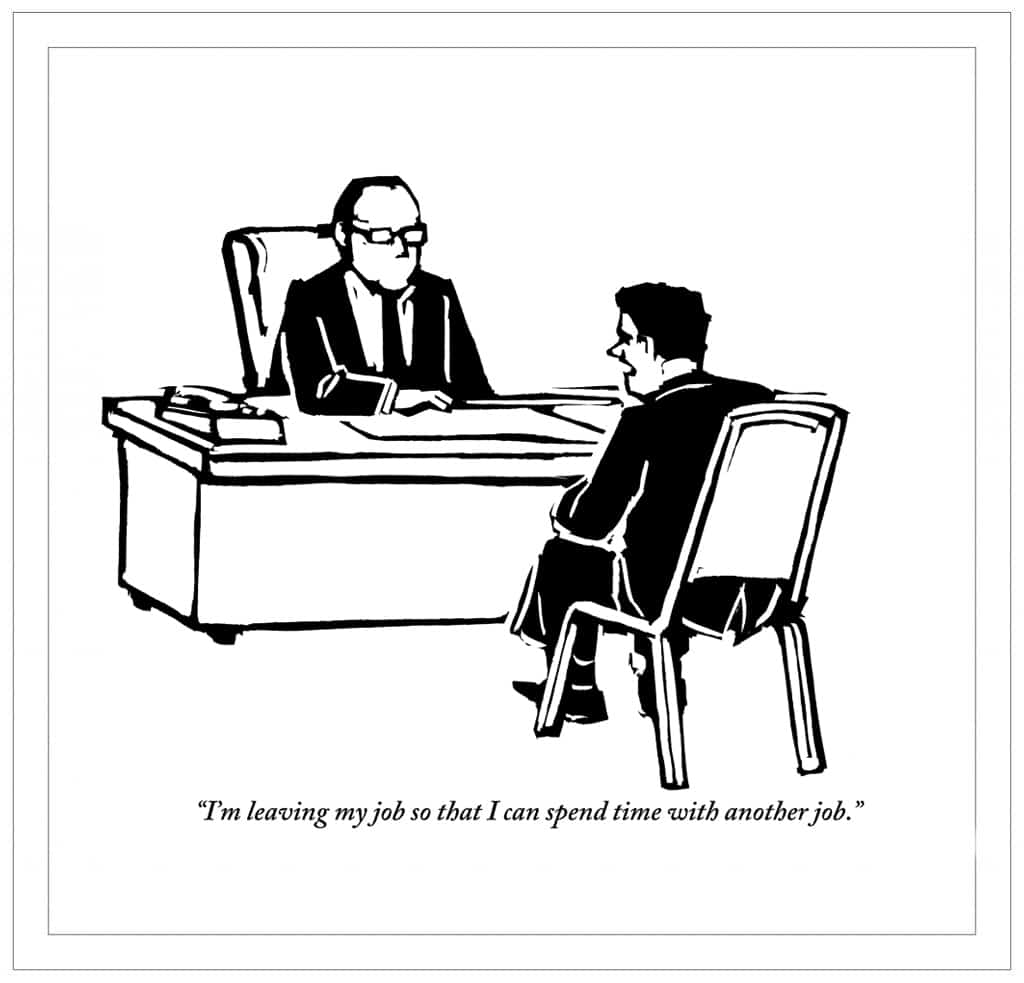Have you applied for a few roles?
Great. You probably have a phone interview just around the corner. Not a full, formal interview, but a quick, informal “chat” with a recruiter.
This type of phone interview can take anywhere between 5 and 20 minutes. Its purpose is to help a recruiter decide whether they want to invite you for a full, structured job interview. Think of it as a quick, sharp elimination round that helps you – and the recruiter – decide whether there’s benefit in investing more time into the process.

Let me share with you the top 5 questions that recruiters and hiring managers ask during phone interviews.
After you learn the interview questions (and my recommended answers), read this post – it will help you do well in any interview.
By the way, if you’d like to take your phone interviewing skills to the highest level, consider using a premium job interview coaching service. We offer these remotely, to clients in Sydney, Melbourne, Adelaide, Brisbane, Canberra, Perth and beyond.
1. Why Are You Leaving Your Current Job?
What They Want To Know:
This is a common way of kicking off a phone interview. The open-ended nature of this question helps the interviewer understand the dynamics surrounding your current employment situation. Whatever you do, don’t badmouth your current employer.
A good answer will allude to seeking personal growth, more challenging work or career advancement. Just be aware that a good interviewer will probe more deeply into any answer that you give, so make sure that you tell the truth.
Example Of A Bad Answer:
“I’ve had enough of my current boss. I’m leaving that guy.”
Example Of A Good Answer:
“I am looking for the opportunity to apply the skills I’ve gained in my current job to a new environment.”
2. Tell Me Something About Yourself That I Wouldn’t Know From Reading Your Resume.
What They Want To Know:
If your resume is like that of most people, it’s quite generic. It speaks about typical expectations and achievements of a person with your level of experience.
For example, if you’re a project manager, your resume probably mentions Agile, Prince2, your timeliness and your ability to act as a conduit between the executive and technical people.
A recruiter who is interviewing for this role will want to drill deeper than that – using this type of interview question. In your response, allude to aspects of your personality, value system and skillset that will be not only unique, but also commercially relevant.
Example Of A Bad Answer:
“I have a pet labrador called Jonno. I also like gardening.” This type of response certainly lists things that are not on your resume, but they do nothing to position you as a solution to an employer’s problem.
Example Of A Good Answer:
“Well, for me work is more than just a means to an end. It’s a channel for creative expression. I know that this seems odd coming from a project manager, but PM work can be surprisingly creative. In fact, I’d insist that in order to be an excellent PM you need to view your job through a creative lens. For example….”
3. How Do You Stay Focused While Working Remotely?
What They Want To Know:
Remote work is a daily reality of the post-COVID world. Employers have been forced to adapt to it, but many still feel apprehensive about each candidate’s individual suitability for it. Consequently, many use the initial phone interview as an opportunity to put their nerves at ease.
Example Of A Bad Answer:
“I work without structure. There are plenty of hours in the day, so I just plug in when I feel like.”
Example Of A Good Answer:
“I begin my day by creating a to-do list, complete with deadlines. I also build in a couple of buffer zones that I can use to handle unexpected tasks. I cross my tasks off as the day progresses. Needless to say, I also make sure that I eliminate distractions, like social media and pets.”
4. What Tasks Do You Not Like To Do?
What They Want To Know:
This phone interview question, in theory, is meant to reveal your working style. Of course, in reality, it’s a game of diplomatic communication, where you reveal just enough to put the recruiter at ease.
Example Of A Bad Answer:
“I don’t like to be told what to do.”
Example Of A Good Answer:
Begin by sharing a weakness that you’ve identified in yourself such as, “I’ve never been comfortable speaking in front of large crowds, so I’ve always dreaded big meetings.” Next, explain how you’ve addressed this weakness. “I decided to turn this weakness into a strength and signed up for Toastmasters.”
5. What Is Something People Assume About You That Is Incorrect?
What They Want To Know:
Emotional intelligence is a key focus of the modern recruitment process, and this phone interview question is designed to shine a light on your levels of this skill. More broadly, it probes for your capacity to reflect on your strengths and weaknesses.
Behind this focus is the idea that a person who is self-reflective is able to improve their behaviour for the better; a person who isn’t aware, is not.
Example Of A Bad Answer:
“I have no idea. People’s opinion of me is not my concern.”
Example Of A Good Answer:
“When I’m focused on my work, I tend to have a very serious vibe. Some people interpret that as being unfriendly. To counter this, I make extra effort to build relationships with my colleagues during less intense parts of my day.”
Bonus Tips: How To Prepare For A Phone Interview.
Eliminate All Distractions.
Put the phone on silent, turn off the TV, make sure that your pet is not barking. Have a notepad and pen ready. (Read my interview preparation guide).
Create A List Of Possible Questions.
Use this guide, and guides similar to it, to create a list of likely phone interview questions. Rehearse your answers – preferably with a friend who can offer effective feedback.
Speak Clearly.
Make sure you wear a headset and speak into it. Let the interviewer finish speaking before responding.
Use Good Interview Etiquette.
After the phone interview, follow up with a written thank you note. Use this as an opportunity to reiterate your value.
